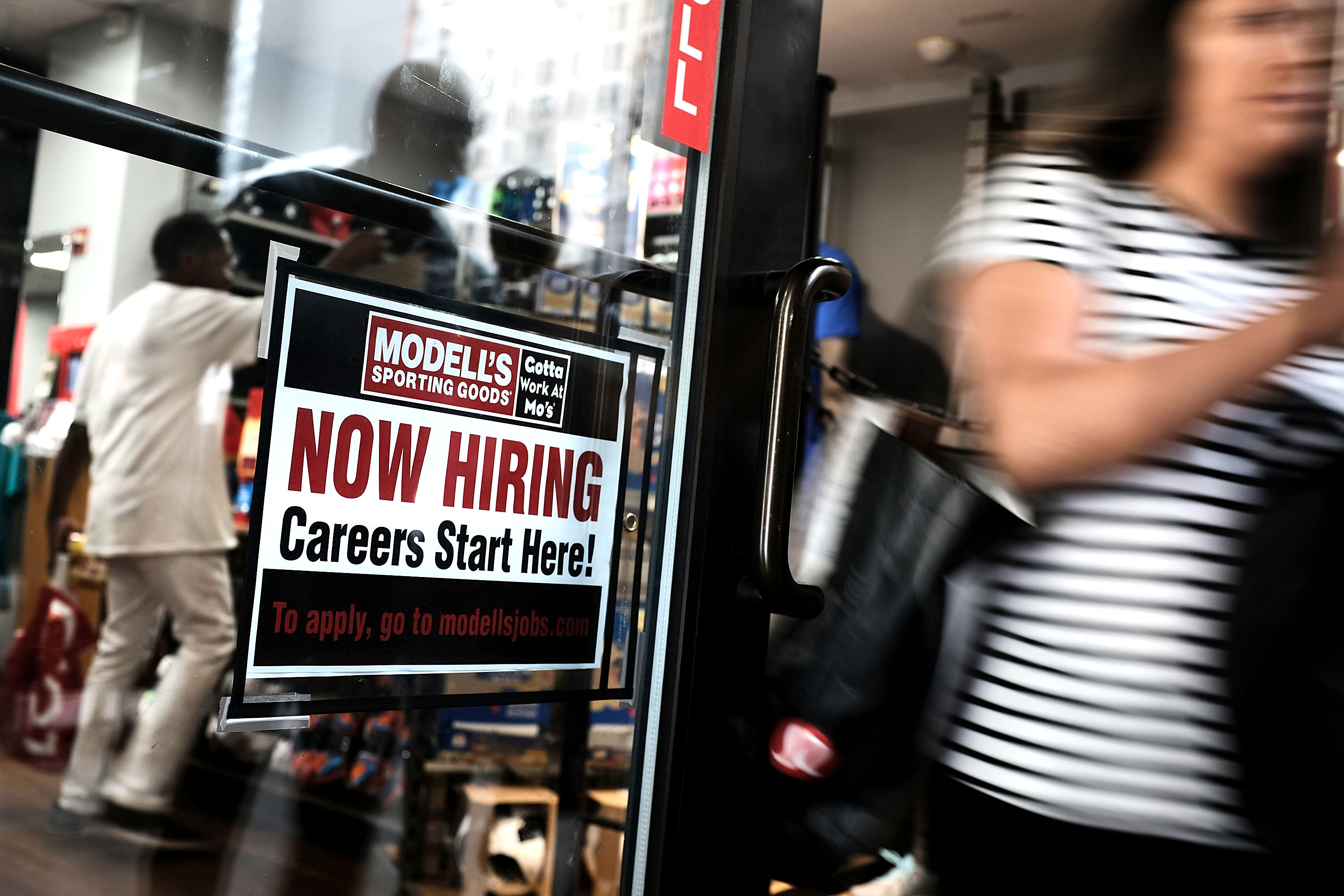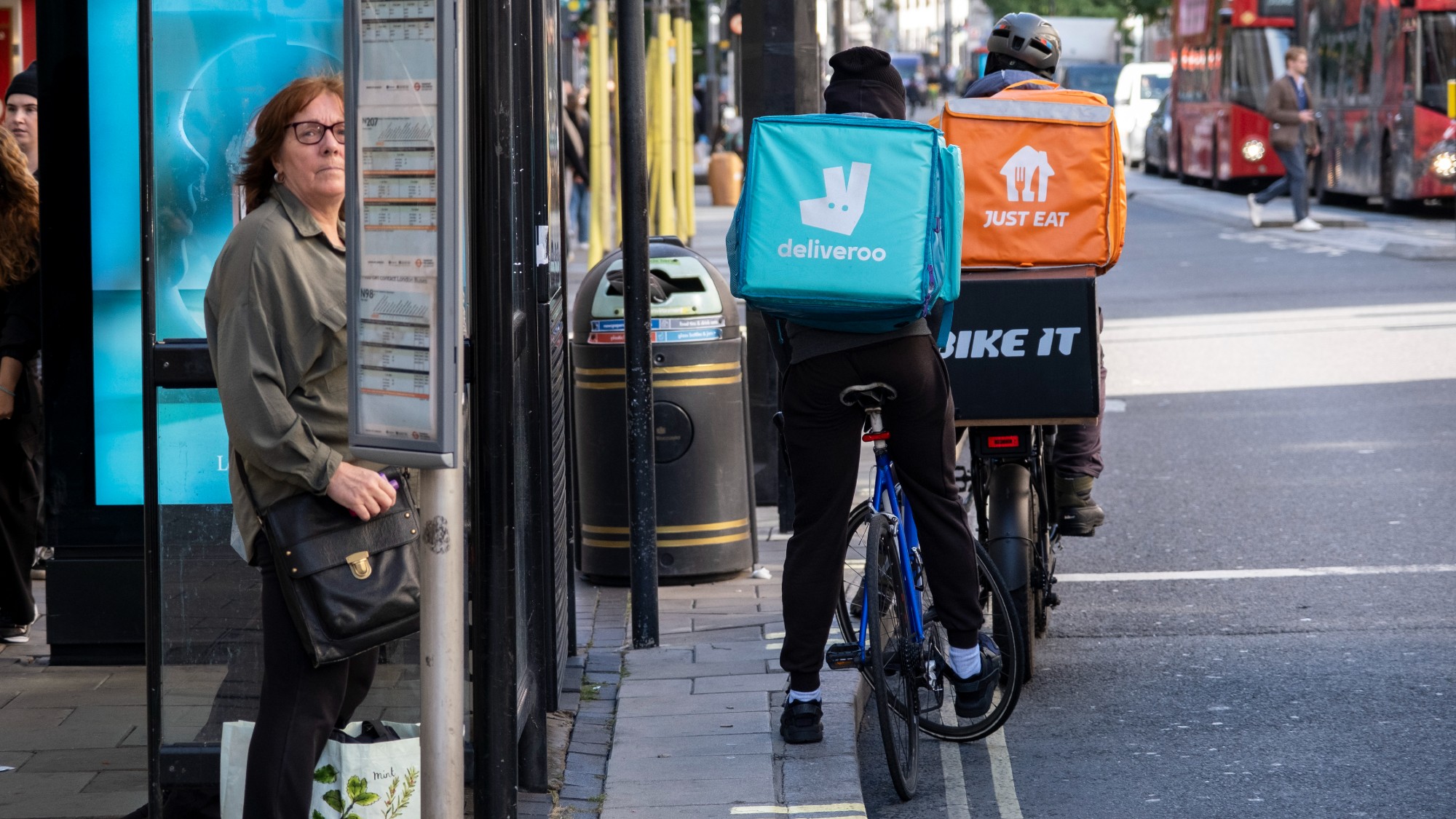America's best job market in years
America has had a record 92 straight months of job growth

The smartest insight and analysis, from all perspectives, rounded up from around the web:
Unemployment in the U.S. right now "is about as low as it gets," said Mark Whitehouse at Bloomberg. Propelled by a record 92 consecutive months of job growth, the U.S. unemployment rate sank to 3.8 percent in May, its lowest level since April 2000; the last time the rate was lower was in 1969. Sectors across the economy contributed to the 223,000 added jobs last month, from manufacturing to health care to retail. The unemployment rate for college graduates fell to just 2 percent, and to only 3.9 percent for those with a high school diploma. Joblessness among African-Americans tumbled from 6.6 percent to a record-low 5.9 percent. And for the first time ever, the number of job openings now exceeds the number of unemployed Americans. The only question from this month's report is "whether there are enough synonyms for 'good,'" said Neil Irwin at The New York Times. Even persistently lackluster wage growth may finally be rebounding: Average earnings are up 2.7 percent year over year, slightly faster than inflation. Clearly, "the economy is in a sweet spot."
"President Trump's tax-reform and deregulation agenda appears to be working," said The Wall Street Journal in an editorial. Employers are adding jobs and raising wages, and that's encouraging "workers who are often on the edges of the economy" to come off the sidelines. Notably, the number of people who have been jobless for 27 weeks or more has fallen by 476,000 over the past year. We just hope that a trade war doesn't blow this impressive progress.
Subscribe to The Week
Escape your echo chamber. Get the facts behind the news, plus analysis from multiple perspectives.

Sign up for The Week's Free Newsletters
From our morning news briefing to a weekly Good News Newsletter, get the best of The Week delivered directly to your inbox.
From our morning news briefing to a weekly Good News Newsletter, get the best of The Week delivered directly to your inbox.
It's natural for President Trump to want to claim responsibility for the "roaring" economy, said Robert Samuelson at The Washington Post. "When the economy does well, presidents of both parties routinely brag about the results." But the true impact of his tax cuts, regulation rollbacks, and tariffs "won't be clear for years." What's really "powering the economy is the economy." Its forward march is less the product of any partisan policy than it is the steady growth of purchasing power and the restoration of consumer confidence.
"Before you get too excited, some perspective," said Paul Davidson at USA Today. The labor force participation rate — the percentage of Americans working or who have actively looked for work in the past month — is 62.7 percent. In 2000, the last time unemployment was this low, the participation rate was 67 percent. Our next challenge, then, is to reintegrate the many Americans ages 25 to 54 who remain outside the workforce, particularly because of the opioid crisis. The economy of 2000 was also completely different. Back then, GDP grew at a robust 4.1 percent and the federal budget was in surplus. In comparison, the U.S. economy grew 2.3 percent in 2017 and our budget deficit is likely to hit $1 trillion next year. That's why if you suggested to most Americans that the economy's as healthy as it was back in 2000, "they'd probably laugh in your face," said Jeff Spross at The Week. Inequality is worse, wage growth is slower, and more people are working as independent contractors, giving employers "more leverage to drive down pay and cut benefits." The headline numbers look great right now, but compared with 18 years ago, "3.8 percent unemployment just ain't what it used to be."
A free daily email with the biggest news stories of the day – and the best features from TheWeek.com
-
 July 11 editorial cartoons
July 11 editorial cartoonsCartoons Friday's political cartoons include Donald Trump and English lessons for Liberia, the MAGA weather forecast, Pete Hegseth, and the incredible disappearing Epstein files.
-
 Quiz of The Week: 5 – 11 July
Quiz of The Week: 5 – 11 JulyHave you been paying attention to The Week's news?
-
 How many people are working illegally in the UK?
How many people are working illegally in the UK?The Explainer Government vows 'nationwide blitz' on illicit workforce believed to number in the hundreds of thousands
-
 The pros and cons of noncompete agreements
The pros and cons of noncompete agreementsThe Explainer The FTC wants to ban companies from binding their employees with noncompete agreements. Who would this benefit, and who would it hurt?
-
 What experts are saying about the economy's surprise contraction
What experts are saying about the economy's surprise contractionThe Explainer The sharpest opinions on the debate from around the web
-
 The death of cities was greatly exaggerated
The death of cities was greatly exaggeratedThe Explainer Why the pandemic predictions about urban flight were wrong
-
 The housing crisis is here
The housing crisis is hereThe Explainer As the pandemic takes its toll, renters face eviction even as buyers are bidding higher
-
 How to be an ally to marginalized coworkers
How to be an ally to marginalized coworkersThe Explainer Show up for your colleagues by showing that you see them and their struggles
-
 What the stock market knows
What the stock market knowsThe Explainer Publicly traded companies are going to wallop small businesses
-
 Can the government save small businesses?
Can the government save small businesses?The Explainer Many are fighting for a fair share of the coronavirus rescue package
-
 How the oil crash could turn into a much bigger economic shock
How the oil crash could turn into a much bigger economic shockThe Explainer This could be a huge problem for the entire economy